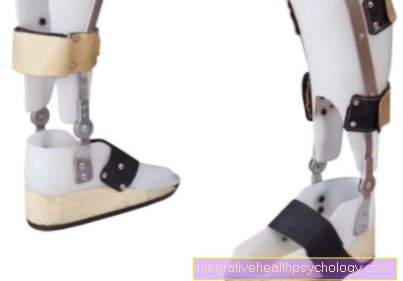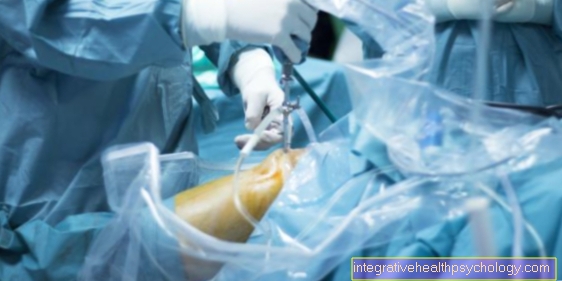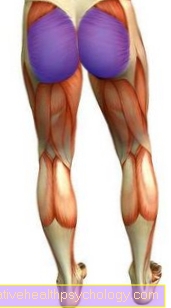U12 examination
Definition - what is the U12?
U12 is a preventive medical check-up that, like U1 to U11, is intended to check the regular development of children.
The child is examined and discussed with them about relevant topics in this age. It is about recognizing diseases as early as possible and giving the child an understanding of prevention. The screening examination U12 is often also called J1.
This topic could also be of interest to you: Preventive medical check-ups in children

When will the U12 take place?
The U12 check-up should take place around the child's 13th birthday. The recommended period for the examination is between 12 and 14 years of age. It is also called the J1 exam because it should be done at the beginning of adolescence and puberty.
Which examinations are carried out?
For the U12 examination, the young person is examined for previously undiscovered diseases, possible preventions are carried out and supported by discussions. To do this, he or she is asked how they are and any health problems they may have. Questions about school development should shed light on possible social problems and behavioral problems.
In addition, it should be asked about the status of puberty and a conversation about sexuality and contraception should be held. The young person should have enough space for all of his or her questions.
After all, the conversation at the beginning of the examination should also be about his or her health behavior. This means that the subject of drugs, smoking and alcohol should also be addressed in order to teach young people how to use these substances as responsibly as possible.
Just as important in this phase of growing up are the changed perception of your own body weight. Obesity and anorexia often develop in this phase of life, which is why special attention should be paid to these diseases when talking to the U12. An incipient tendency towards such a physical development should be recognized and treated as early as possible.
Finally, the young people can also ask questions about any topic that concerns them. This is where other social problems and questions about your body can be asked. Following the interview, the vaccination status is checked and, if necessary, completed.
The young person is physically examined to the extent that the frequent bad posture, heart and lung diseases are excluded. Attached to this, a urine and blood sample is examined for inflammation and other diseases. It should exclude chronic diseases of the kidneys, liver and blood-forming bone marrow.
That could be interesting for you too: Hormonal contraceptives
How is the U12 going?
The process of the U12 is probably designed differently by every doctor. It is only important that the decisive elements of the conversation and the investigation are included in it. If necessary, the doctor will also add other examinations and discussion topics that are important to him in his process. Such an examination could be, for example, a rough field of vision and reflex test.
If there is a need for further clarification based on the results of the blood and urine samples, the actual U12 appointment may be followed by an appointment. All those aspects of the U12 process are designed by the doctor. Of course, the young people can change the process or expand it with questions about their bodies and the like. At the end of the U12 examination, a form is filled out in which the results of the examination are recorded.
That could be interesting for you too: Visual field examination
Does my child have to go to U12?
U12 is not mandatory. However, the U-examinations are intended to ensure that defects and illnesses in adolescents and children are recognized by a doctor as quickly as possible and thus do not endanger normal physical and mental development. It is therefore particularly desirable that the examinations be noticed.
For this reason, a binding “invitation and registration system” has been set up in most of the federal states, which notifies parents of an upcoming or missed appointment. If necessary, even inform the youth welfare office after several defaults. All of these facilities are intended to benefit the child.
What happens if I go to U12 with my child?
At the U12, your child will be examined physically and asked about important topics relating to health behavior and school development in a conversation. The aim of the U12 is to discover and treat mental and physical illnesses at an early stage. A blood and urine sample is taken from the children and examined in order to detect any chronic diseases of the blood, liver and kidneys.
At the end of the U12, the results are recorded on a separate form, which can be inserted in the yellow U-booklet. If there is still a need for further clarification, a second appointment can be added to the investigation.
Read more about this under: Physical examination
Who bears the costs of the U12?
The costs of the U12 are covered by the health insurance companies.
In contrast to this, the services for examinations U10, U11 and J2 are not covered by all health insurers, although the professional association of paediatricians recommended them as early as 2006. The respective health insurance company should be consulted here, because more and more people are also taking on these preventive examinations.
How long does the U12 examination take?
How long the U12 lasts depends largely on how much time the doctor allows for the examinations, how much discussion there is and how many inquiries come from the respective young person. The examination also includes a blood sample and a urine sample, which can also take some time. Therefore, do not allow too little time for it.
There should be at least one hour for all of these examinations and discussions.
Recommendations from the editorial team
- U examinations
- Medical check-up in children
- Stages of puberty
- Overweight in children
- contraception

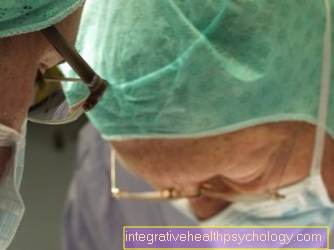





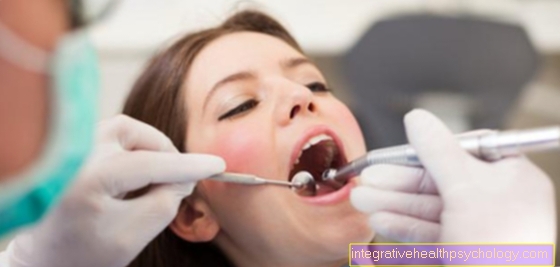

.jpg)






